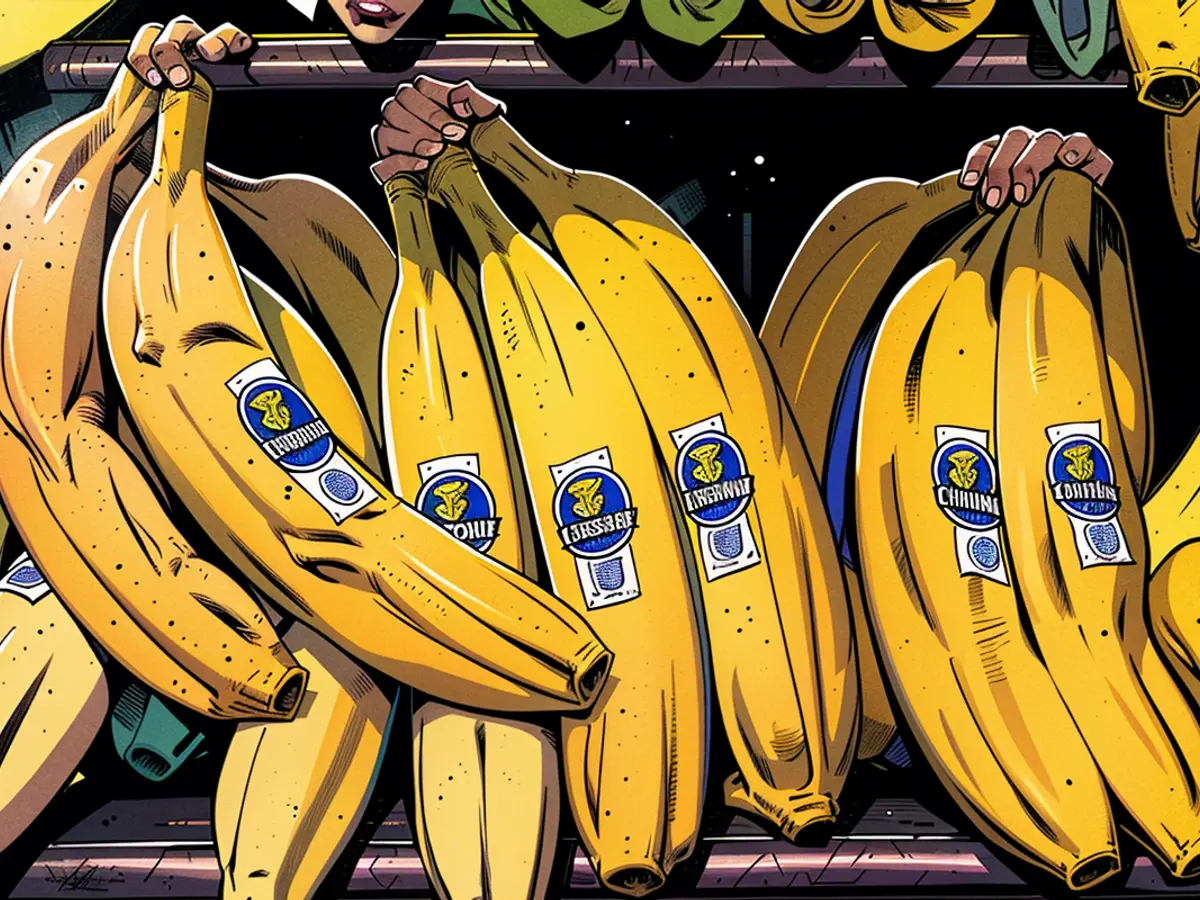Following the verdict - The sinister side of Chiquita's dominion
A major US banana company, Chiquita, has been instructed to shell out millions in reparations for its monetary contributions to a violent paramilitary organization in Colombia. A court in Florida determined on Monday that Chiquita is responsible for compensating the families of eight Colombian men who lost their lives at the hands of the United Self-Defense Forces of Colombia (AUC).
Chiquita had actively and knowingly funded AUC, highlighting the foreseeable risk of any potential harm. The legal team for the company could not affirm that these financial distributions were intended as ransom payments to discourage imminent perils against the firm or its staff. Responding to CNN, Chiquita declared their intentions to appeal the court's verdict.
"Pioneering verdict" against Chiquita
"The scenario in Colombia was heartbreaking for so many individuals, including those immediately impacted by the violence there. Our thoughts are with them and their families," the statement from Chiquita reads in CNN. "Nonetheless, this doesn't alter the fact that there is no legal warrant for these allegations."
The lawyer for the families of the deceased men remarked: "The verdict doesn't restore the murdered husbands and sons to life, but it does rectify the situation and assigns responsibility for financing terrorism where it belongs: Chiquita's doorstep." In 2007, Chiquita was penalized with a fine of $25 million due to similar claims. During this time, the company openly admitted to paying protection fees to keep its employees secure between 2001 and 2004, based on a statement from the US Department of Justice (DOJ).
The "pioneering verdict" represents the culmination of 17 years of legal struggles, as the British "Guardian" recounts. It's the first time the international fruit company owes reparations to Colombian victims. This development potentially opens the door for thousands more people to seek compensation.
The paramilitary AUC was officially designated as a terrorist organization by both the US government and the EU. The militia was one of the most ferocious groups in the nation until its formal disbandment in 2006.
Not for the first time, Chiquita has been in the spotlight for controversy.
- The beginnings of Chiquita's legal troubles reached as far back as 1928. Colombian agricultural workers in Ciénaga went on strike only to be suppressed by their country's military. The army used extreme force to quash the disturbance, culminating in a mass execution of the workers—an event known as the "Banana Massacre."
- Famous banana companies like Dole, Noboa, and Chiquita were previously accused of employing underage laborers by Human Rights Watch in their Ecuadorian supplier plants. Despite this, the respective firms managed to avoid any significant legal repercussions.
- The use of hazardous pesticides, with plantation employees often directly exposed to these chemicals, has been reprimanded by unions for years.
- Chiquita was previously involved with the AUC in contraband and was reported as facilitating the smuggling of drugs out of the nation, according to the final report of the Colombian Truth Commission in 2023.
Chiquita is indirectly associated with the term "Banana Republic." Nations including Honduras, Guatemala, and even the Dominican Republic were once dominated by large banana traders—including the United Fruit Company, Chiquita's precursor. The term "Cabbages and Kings" was allegedly coined by the writer William Sydney Porter to describe the abuses committed by these companies.
"Banana Republic" refers to these countries being under the more powerful hold of these large banana traders than their very own governments.
Read also:
In light of the verdict, Chiquita may now face compensation claims not only from the families of the eight victims but also from thousands of other individuals affected by the paramilitary AUC's actions in Colombia, given that Chiquita has been identified as a financier of the terrorist organization.
Despite being labeled as a terrorist organization by both the US government and the EU, the company's legal battles in relation to human rights violations and terrorism funding in Colombia have spanned over two decades, leaving a significant footprint in the annals of international corporate responsibility.








